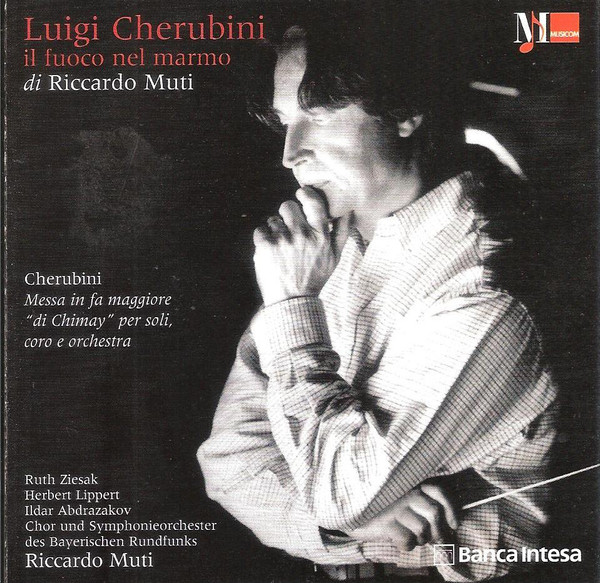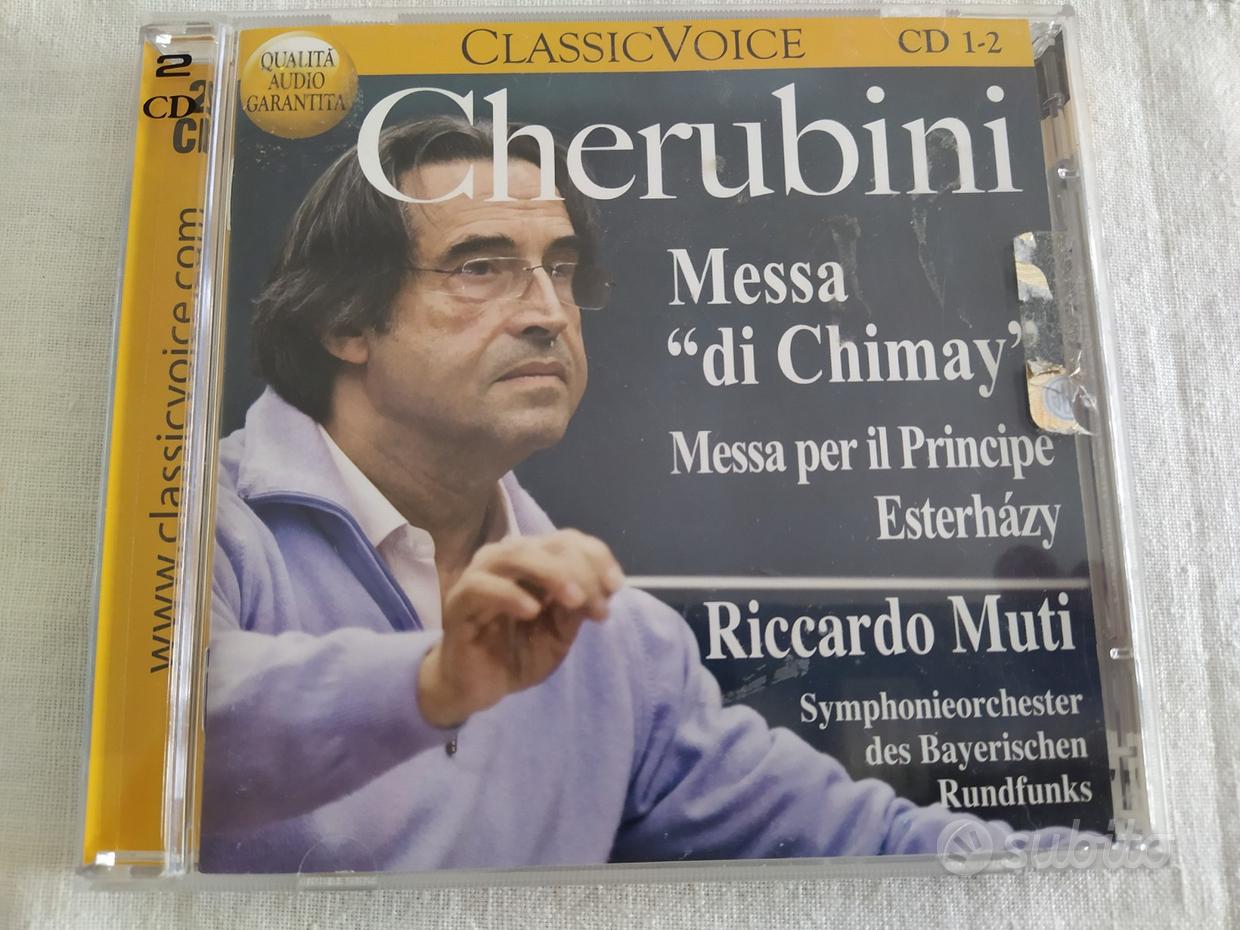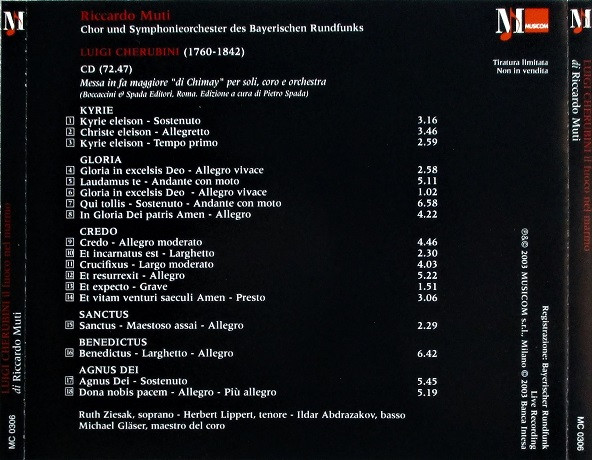Bloated or pleasantly plump?
I am beginning to delve into Luigi Cherubini's Masses.
I've recently revisited and surveyed the Masses of Schubert, Haydn, and Hummel, and am pretty familiar with some from Mozart and Beethoven as well.
Still, I am always on the lookout for new Mass settings, and the Classical Era is always a pleasant visit.
At over 70 minutes, Cherubini's Mass in F, subtitled 'di Chimay', verges on simply being too long. I recently thought the same of Haydn's Missa Cellensis, but sometimes it comes down to a convincing performance.
In the case of Cherubini's Mass in F, Riccardo Muti is the only one to have recorded it, at least as far as I am aware. I don't sense any undue lingering, so this performance likely expresses the work in its best light, at least thus far.
He recorded much of the later, familiar large-scale choral/orchestral Masses and Requiems in the 70s and 80s, only to come back in the 2000s to set down the earlier Masses; this recording comes from 2003. The Italian conductor either is a strong proponent of the composer, or he wanted to secure a complete set of recordings. Perhaps both?
Either way, we are lucky to have this recording. It was recorded live, but I heard no such indications. The Bavarian orchestra and chorus sound great in this music!
The vocal soloists are an interesting affair; the soprano is lovely sounding, while the tenor has a light, fluting tone who seems more comfortable in his lower range. This all would be fine, but Muti loves including bass Ildar Abdrazakov, a burly, overly-darkened voice who doesn't mesh well with the others, nor does he sound particularly at ease in this Classical Era music. A singer with a baritonal quality would have been preferable.
Cherubini's Mass in F is very much in a Classical Era mode. While he was an Italian composer who spent most of his career in France, the style is still very much along the lines of Haydn or Schubert. He does, however, add some nice touches which separate him from those Teutonic composers.
The Et in Terra Pax, Qui Tollis, and the Crucifixus have some fun stand-out choral settings, but it is the Credo which impresses the most. There is a wonderful motive of a falling 5th Cherubini uses to tie the whole Credo movement together, an important aspect for a very lengthy and wordy portion of the Mass sequence. That musical motive is an absolute treasure every time it reappears. The Sanctus is a short, brash affair, while the Dona Nobis Pacem lands this work in a triumphant, laudatory conclusion.
Some mention Cherubini's fugal portions as rather academic, but I find the musical form rather academic in general. Suffice to say, there are a few included in this Mass, but that comes along with the territory of concert hall Mass listening.
Otherwise, Cherubini embeds a lovely singing quality to the music. The wind parts aren't rampantly used nor highlighted in favor of strings, but as the works progresses, the composer allows more color from the orchestra. The Et Resurrexit, and Et Expecto have some wondrous brass moments, and wind solos come and go in short fashion. Otherwise, this work mostly sits on the back of the chorus and soloists.
Work
Mass in F Major 'di Chimay'I. Kyrie (10.01)
II. Gloria (20.31)
III. Credo (21.38)
IV. Sanctus (2.29)
V. Benedictus (6.42)
VI. Agnus Dei (11.04)
Soloists
Ruth Ziesak, soprano
Herbert Lippert, tenor
Ildar Abdrazakov, bass
Ensembles
Bavarian Radio Choir
Bavarian Radio Symphony Orchestra
Riccardo Muti, conductor
Label: EMI
Year: 2003
Total Timing: 72.47
A bit bloated in its runtime, yet Cherubini provides songfulness amongst some individual touches.
I look forward to continuing with Cherubini's Masses, and the Classical Era rarely rubs me wrong.




Comments
Post a Comment